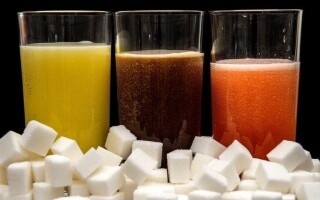
A recent study conducted by doctors at the Taft University in the USA revealed the harmful consequences of consuming sugar-sweetened beverages for the heart and blood vessels. Among such beverages, one can mention soda and energy drinks. These drinks are specially created to be exceptionally tasty, but in doing so, they contain a large amount of sugar, stimulating centers of pleasure in the brain.
Typically, sugar-sweetened beverages have low nutritional value, and studies show that regular consumption may increase the risk of health problems, such as cavities, obesity, type 2 diabetes, and cardiovascular diseases. According to recent research, approximately 1.2 million new cases of cardiovascular diseases and 2.2 million new cases of type 2 diabetes develop each year worldwide due to the consumption of sugar-sweetened beverages.
Although overall consumption of sugar-sweetened beverages has decreased in certain developing countries recently, the authors of the study note that soda consumption represents a significant threat to public health in most countries, especially in developing countries.
The main author of the study, Dario Mathferian, a cardiologist and public health specialist from Taft University, noted: "Sugar-sweetened beverages are widely marketed in countries with low and medium-income levels. These communities not only consume harmful products but often are not prepared for the consequences of long-term health issues."
The study specifically excludes sugar-sweetened beverages, including any beverage to which sugar is added and that contains no less than 50 calories per each 8 ounces. This includes commercial and homemade sodas, energy drinks, fruit drinks, and lemonades.
Researchers note that this definition does not include drinks such as sweetened milk, fruit juices, and vegetable juices made from 100% and artificially sweetened drinks with zero-calorie content, although many of them can pose health risks if consumed in excess.
Data collection on beverage consumption and diseases, researchers analyzed risks associated with artificially sweetened beverages, relying on previous studies on the physiological effects of sugar-sweetened beverages. In the world, artificially sweetened drinks are considered a factor contributing to the occurrence of 1.2 million new cases of cardiovascular diseases and 2.2 million new cases of type 2 diabetes annually.














